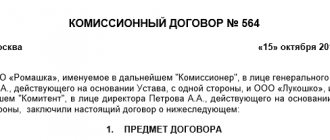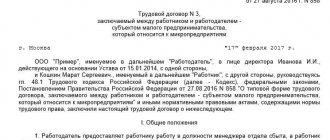Main types of assignment agreements
The terms of the assignment agreement are quite different and depend on the objects that enter into it. That's why. that the contract is not limited by any conditions by law, they can be divided into several types:
- An assignment agreement that has three parties - this situation occurs quite often, since in addition to the fact that the assignment and the assignee participate in the agreement, the debtor also takes part in it, putting forward any of his demands. So, he must not only be informed about this procedure, but also discuss all the terms of the transaction.
- Changing the debtor in the assignment agreement can be paid or unpaid - it is important to know that some collectors may not demand money from you, while others will certainly express such a desire.
- An assignment agreement can be compensated or gratuitous - the assignor can simply pay off the debt, or by selling it when money is needed, or in honor of an outstanding debt.
- The agreement must be concluded by law, through a writ of execution - in this case, most often, the parties go to court to clarify their rights and obligations.
In addition, this document may differ depending on who is the party to the transaction. Thus, an agreement between legal entities - this type of agreement is quite popular and is often used, since debtors or a need for money often arise in the practice of legal entities.
It is in this case that the Assignment Agreement is used as a transfer of rights from one person to another. In order for an agreement to be concluded, it is necessary to draw up an agreement and stipulate there all the conditions for the transfer of the debtor.
Most often, this document will be compensated and have a bilateral nature, although there are exceptions. An important point of the contract is the stated reason why the rights are transferred. If the agreement is concluded between legal entities, you will definitely need to have it notarized.
Remember that the law does not punish parties who provide incorrect information, and therefore you should carefully check all the documents under the assignment agreement yourself.
In addition to legal entities, an agreement can be signed between natural representatives. Thus, the fact remains completely unimportant whether you are the owner of any organization or represent only your interests.
According to the law, individuals themselves have the right to determine the duration of the assignment, as well as the exact amount. In addition, the agreement must contain the conditions on the basis of which the rights and obligations are transferred to the object, this could be the amount that must be transferred, the timing of its repayment, a paid or gratuitous method of transfer.
Restrictions on the use of assignment
Unfortunately, the legislation does not provide clear rules to which entity the right of assignment can be transferred, but it does contain clear rules regarding in what situations this right is prohibited.
In general, an object that:
- Has any connections with the creditor.
- Bound to the creditor for payment of alimony payments.
- Associated with a person on the labor compensation side.
- Caused harm to the health or life of the creditor, etc.
These rules are spelled out in Article 383 of the Civil Code of the Russian Federation and are the only restrictions of their kind regarding who can be a participant in the assignment.
assignment agreement in MS Word format.
Documents for transactions on assignment of rights
The main purpose of the agreement is that after the transfer of rights, the new owner will have to communicate with the debtor and demand that he return the money back. The result will be achieved if the debtor finally returns the money to the assignee, thereby fully fulfilling his obligations.
In order for the transaction to be successful, the assignor must provide the other party with a package of complete documents, so the main ones are:
- Purchase and sale agreement.
- A document confirming the reconciliation of settlements with the agent.
- Documents that confirm certain income and expenses.
- Documents about the debt itself.
It is important to know that in the assignment according to the loan agreement, the documents may differ slightly:
- Loan agreement.
- Bank account statement showing income and expenses.
- Statement of payments, as well as payment receipts.
In practice, the contract may contain additional conditions to the documents that may be needed when concluding a transaction. Thus, his presence will also have to be recorded in the contract.
BU with the assignee
| Dt | CT | Sum | Operation |
| 58 | 76(A) | 110000 | Purchasing the right to claim a debt (financial investment) |
| 76(A) | 51 | 110000 | Payment to the assignor from the account |
| 51 | 76(B) | 120000 | Received a payment from the debtor |
| 76(B) | 91.01 | 120000 | Revenue reflected |
| 91.02 | 58 | 110000 | Costs reflected |
| 91.02 | 68.02 VAT | 1666,67 | VAT charged on the transaction (10000*20/120) |
Possible transactions when using an assignment agreement
Depending on the subject of the contract, various conditions and contracts may be distinguished. So, experts distinguish the main ones:
- According to the legislation of the Russian Federation, namely Law 552 of the Civil Code, it is important to know that by transferring the rights to some real estate , you also transfer the rights to a land plot that is located next to or occupied by the property at home.
- The insurance assignment is as follows - this is a certain assignment of property rights, passing from the insured to the insurer, and the intended payment of all insurance obligations, according to which the payment period comes due.
- In the supply sector , this service is also often provided, and it contains a situation where the supplier can transfer the rights to the debt from the creditor to another person.
- Assignment under a work contract is a rather complex document, as it has its own characteristics. One of them is that the transfer of obligations from the contractor can only be carried out with the written consent of the latter. Thus, consent must be obtained from both the person who ordered these services and the person who performed them.
- Assignment in credit and banking operations - for its implementation, additional documents will be needed, such as a loan agreement, with exact payments, term and amount.
Agreement on the assignment of a future claim - sample
Agreement for assignment of future claims
| Saint Petersburg | November 29, 2020 |
Limited Liability Company “Gamma” (hereinafter referred to as the Assignor) represented by First Deputy General Director Andrey Andreevich Andreev, acting on the basis of power of attorney dated May 14, 2018 No. 1345, on the one hand, and
Limited Liability Company “Yantar” (hereinafter referred to as the Assignee), represented by Deputy General Director Alexander Ivanovich Sokolov, acting on the basis of power of attorney dated October 2, 2020 No. 555, on the other hand, hereinafter collectively referred to as the “Parties”, have entered into this agreement (hereinafter – Agreement) about the following.
- Subject of the Agreement
1.1. The Assignor assigns, and the Assignee accepts the right of claim that the Assignor will have in the future in relation to Sigma LLC (OGRN 1087741512597, INN 7701234567, hereinafter referred to as the Debtor).
1.2. The assigned claim consists of demanding unjust enrichment from the Debtor in the amount of the unpaid advance payment under the contract between Gamma LLC (customer, Assignor) and Sigma LLC (contractor, Debtor) dated 02/08/2018 No. 3 (hereinafter referred to as the Contract Agreement).
1.3. The Assignor’s right to the assigned claim is based on the following documents:
- Work agreement;
- payment order dated 02/12/2018 N 312 in the amount of 7,500,000 (seven million five hundred thousand) rubles, which confirms the fact of payment by the Assignor to the Debtor of an advance under the Contract;
- certificate KS-3 dated November 27, 2018 N 9/F, signed by the Assignor and the Debtor, according to which the amount of the unpaid advance payment under the Contract Agreement is 1,027,349 (one million twenty-seven thousand three hundred forty-nine) rubles. 34 kopecks
|
1.4. The assignee is transferred to the claim for the return of unjust enrichment in the amount of the unpaid advance payment under the Contract, which amounts to 1,027,349 (one million twenty-seven thousand three hundred forty-nine) rubles. 34 kopecks The right to claim interest on the amount of unjust enrichment remains with the Assignor.
|
1.5. The assigned claim will arise at the moment of termination of the Contract.
- Concession price
2.1. The Assignor's remuneration for the assignment (hereinafter referred to as the Remuneration) is 850,000 (eight hundred fifty thousand) rubles, not subject to VAT.
|
2.2. The Assignee undertakes to pay the Assignor the Remuneration by bank transfer to the current account specified in this Agreement within the following terms:
- 400,000 (four hundred thousand) rub. – within 3 (three) days from the date of signing by the Parties of the bilateral act specified in clause 3.2 of this Agreement;
- 450,000 (four hundred fifty thousand) rub. – within 3 (three) days from the date of signing by the Parties of the bilateral act specified in clause 3.3 of this Agreement.
- Procedure for execution of the Agreement
3.1. The right to the assigned claim passes to the Assignee from the date of its occurrence.
|
3.2. Within 3 (three) days from the date of signing this Agreement, the Assignor, under a bilateral deed, transfers to the Assignee notarized copies of the following documents:
- Contracts;
- payment order dated February 12, 2018 N 312 in the amount of 7,500,000 (seven million five hundred thousand) rubles;
- certificate KS-3 dated November 27, 2018 N 9/F, signed by the Assignor and the Debtor, according to which the amount of the unpaid advance payment under the Contract Agreement is 1,027,349 (one million twenty-seven thousand three hundred forty-nine) rubles. 34 kopecks
3.3. Within 3 (three) days from the date of occurrence of the assigned claim, the Assignor, under a bilateral deed, transfers to the Assignee notarized copies of:
- a document confirming the termination of the Contract;
- notification of the Debtor about the transfer of the claim to the Assignee.
3.4. The Assignor undertakes, if necessary, to provide the Assignee for review with the originals of the documents specified in clauses 3.2, 3.3 of this Agreement, and to provide him with all information relevant to the implementation of the claim.
3.5. The Assignor undertakes, at the written request of the Assignee, to inform the Assignee in writing within 2 (two) days of receipt of the request information about its actions aimed at terminating the Contract.
3.6. The Assignor undertakes to notify the Debtor of the transfer of the claim in writing. The notice must be sent by registered mail with return receipt requested within 2 (two) days from the date the assigned claim arises.
3.7. The Assignor undertakes to transfer to the Assignee everything received from the Debtor on account of the assigned claim.
- Assignor's guarantees
4.1. The Assignor warrants to the Assignee that:
- the grounds for the occurrence of the assigned claim are valid and exist;
- The assignor has the right to assign the claim;
- The assignor has not assigned and will not assign the claim to other persons;
- The Assignor has not committed and will not commit actions that could become the basis for the Debtor’s objections to the assigned claim;
- the Debtor's consent to the assignment of the claim is not necessary; a prohibition on the assignment of the claim has not been established.
4.2. The Assignor undertakes to take all necessary actions to terminate the Contract Agreement and assures the Assignee that the Contract Agreement will be terminated no later than December 17, 2020.
- Responsibility of the Parties
5.1. In case of failure to fulfill or improper fulfillment of their obligations under this Agreement, the Parties shall be liable in accordance with the current legislation of the Russian Federation and the terms of the Agreement.
5.2. For violation of the terms of payment of the Remuneration established by Section. 2 of this Agreement, the Assignor has the right to demand from the Assignee payment of a penalty (penalty) in the amount of 0.05% of the debt amount for each day of delay.
5.3. For violation of the deadlines for the transfer of documents established by clauses 3.2, 3.3 of this Agreement, the Assignee has the right to demand from the Assignor payment of a fine in the amount of 0.05% of the amount of the Remuneration for each day of delay.
5.4. For violation of the deadline for termination of the Contract Agreement established by clause 4.2 of this Agreement, the Assignee has the right to demand from the Assignor payment of a fine in the amount of 0.05% of the amount of the Remuneration for each day of delay.
- Amendment and termination of the Agreement
6.1. The contract may be amended or terminated on the grounds and in the manner established by the current legislation of the Russian Federation.
- Dispute Resolution
7.1. Before filing a claim arising from the Agreement, the party who believes that its rights have been violated is obliged to send a written claim to the other party.
7.2. A party has the right to submit a dispute to the court after 15 calendar days from the date of receipt of the claim by the other party.
|
- Final provisions
8.1. This Agreement is drawn up in 2 (two) copies - one for each party. All copies have equal legal force.
8.2. Applications, notifications, notices, demands and other legally significant communications that are related to the emergence, change or termination of obligations based on the Agreement must be sent to the address specified in the Agreement in the section “Addresses and details of the parties”, only in one of the following ways:
|
- courier delivery. Receipt of the document must be confirmed by a receipt from the party. The receipt must contain the name of the document and the date of its receipt, full name. and the signature of the person who received the document;
- by registered mail with acknowledgment of receipt.
|
8.3. Unless otherwise provided by law, all legally significant messages under the Agreement entail civil consequences for the receiving party from the moment the message is delivered to it or its representative.
8.4. A message is considered delivered even if it was received by the person to whom it was sent, but due to circumstances depending on him, was not delivered to him or the addressee did not familiarize himself with it.










